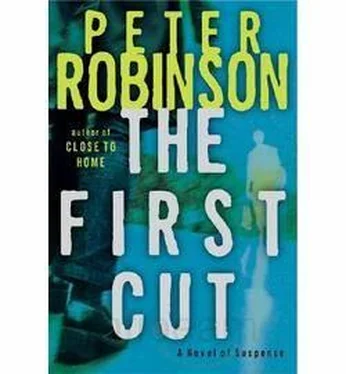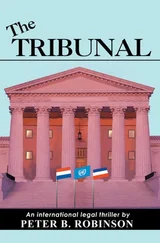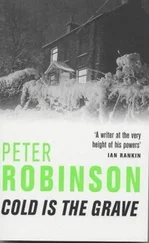Martha ordered a cup of black coffee and sat down to struggle with The Times crossword. While mulling over clues, she watched the ebb and flow of people beyond the windows: more couples pushing babies in prams; toddlers hanging onto mummy’s hand; stout old women with gray hair and sensible shoes. Outside the music shop opposite, a skinny young man clad in jeans and a checked shirt, who looked like he hadn’t slept for a month or combed his hair for at least as long, started singing folk songs in a nasal voice. Some people dropped coins into the hat that lay on the pavement beside him.
When she had done as much of the crossword as she could, Martha read through the paper. She found nothing of interest. Waiting was no fun. It must be like this for soldiers, she thought, just before they know they are going into action. They sit around in the trenches, or on landing craft, smoking and keeping very quiet. She had no idea what she would do when it was all over. That was an aspect of the business she had left completely to instinct. Because she didn’t know how she would feel when it was done, she couldn’t make any plans about what to do. She just hoped that possibilities would present themselves when the time came.
She wandered up and down Church Street gazing at the displays of jet-ware, beautiful polished black stones set in gold and silver, or larger chunks carved into ornamental chess pieces and delicate figurines. By noon she was hungry again. So much for the staying power of black pudding and bacon. Desperate for an alternative to fish and chips, she nipped into the Black Horse and ordered a steak and kidney pie, which she washed down with a half of bitter. Then she smoked a cigarette and struggled for a while longer with the crossword. By half past one she was out on the street again wondering what to do with the rest of the day. She didn’t want to go up to St. Mary’s again, and there was no sense in simply tramping the streets all day.
Close to the junction of Church Street and Bridge Street stood a small bookshop. The bell pinged as Martha went inside, and a plump, bespectacled girl smiled at her from behind a counter stacked with invoices and orders. The place had a large and comprehensive paperback fiction section, which Martha browsed through methodically, starting with A: Ackroyd, Amis, Austen, Burgess, Chatwin, Dickens, Drabble, Greene, Hardy…
“Can I help you?” the assistant asked, coming out from behind her counter and raising her glasses.
“No,” Martha said, flashing her a quick smile. “Just browsing. I’ll find something.”
The woman went back to her paperwork and Martha carried on scanning the titles. She wanted an ordered world she could lose herself in for a while. Nothing modern would do; twentieth-century literature, with its experiments in style, its self-conscious artistry and its lack of morality and order, had never much interested her. At one time she had liked to escape into the occasional crime novel-Ruth Rendell, P. D. James-but such things held no appeal for her now. For a moment she considered Moby-Dick. She had never read it, and the seaside, especially an old whaling center, would be the ideal place to start. But when she got to the M s, she found they hadn’t a copy left in stock. The only Melville book they had was Pierre, and she was in no mood for that. Finally, she settled for Jane Austen’s Emma. She had read it at school, for her A-levels, but that seemed a lifetime ago. With Jane Austen, you could count on nothing more to ruffle the ordered surface than an occasional social gaffe or mistaken romantic intentions.
What better to do, then, than spend an afternoon on the beach reading Emma? She just hoped Keith wasn’t there. He had said he was moving on, but he could have changed his mind.
She made her way back over the bridge. With the tide out, the River Esk was reduced to a narrow channel in the sand. Boats leaned in the silt at odd angles. Martha walked along St. Ann ’s Staith, thinking of the old days in the photograph when the railing was made of wood. She passed the amusement arcades, seafood stalls and Dracula Museum, then at the end of Pier Road she took the steps down to the beach.
Whitby Sands runs below West Cliff, and over the centuries, the sea has carved small caves and caverns in the sheer rock wall. Martha poked her head inside one. It didn’t go very deep, but it was a dank, gloomy place, full of slimy rocks, smelly seaweed and dead, dried-out molluscs that crunched underfoot. She shivered and turned away.
The beach itself was crowded-only to be expected on such a fine day-but Martha managed to find a spot where she could lean back against the rock and stretch her feet out. Children screamed and splashed in the water, bravely taking it in turns to stand fast as waves came in and bowled them over. Anxious parents kept one eye on the knitting or the newspaper, and the other on the kids. Some children were busy constructing elaborate sand castles with turrets, battlements, moats and drawbridges.
Some people were even sunbathing. A couple of teenage girls wearing skimpy bikinis lay flat out on towels. A group of boys about the same age, playing cricket nearby, kept hitting the ball in their direction just to make an excuse to chat the girls up.
What Martha was watching, she realized, was another way of life, another world completely-or one she had once known but lost. If she felt like a visitor from outer space when she watched lovers walk hand in hand, parents push babies in prams, and children play in the foam, she felt even more so when she watched the elaborate contact and courtship rituals of these teenagers bursting with hormones.
The first couple of times the cricket ball kicked up a little sand on the girls’ bare stomachs, they responded with abuse. Anyone watching would think they didn’t like getting sand in their navels. After a while, though, they started to join in the spirit of the game. They would pick up the ball and throw it toward the sea, or run off and bury it in the sand, laughing and making fun of the boys. Martha had never before noticed the importance of sheer repetition and persistence in the human mating ritual.
It was like watching a species of animal or insect, Martha thought, putting Jane Austen aside and lighting a cigarette. No matter how much progress we seem to have made, we still dance to primitive patterns so deeply imprinted that we wouldn’t recognize them if they tripped us up in the street. Which they often do. Though we have the miracle of language, we still make more sense with meaningless sounds, gestures, looks and silences.
And beneath all the elaborate courtship rituals, Martha thought, lay pure animal desire and the scarcely recognized impulse to perpetuate the species. Just like Keith last night. He had wanted Martha. He had wanted to take her to his bed naked and enter her for the pleasure it gave him. All that fuss over five minutes of grunting sounds-or was it squelching sounds?-someone had once said. People would do anything for it: lie, cheat, steal, maim, kill, even die.
The whole human drama seemed so sad and pointless to Martha that day on the beach. People amounted to nothing more than puppets manipulated by forces they didn’t understand or, worse, even perceive. Shakespeare was right, as usual: “As flies to wanton boys, are we to th’gods; They kill us for their sport.” Martha included herself, too. Hadn’t she experienced the “sport” of the gods? And just how much choice did she really have in this tragedy or farce she was acting out? She was jumping to strings as much as anyone else. Different strings, perhaps, with more sinister pullers, but beyond her control nonetheless. Despite the heat, she shivered.
Finally, she managed to pull herself out of the philosophical gloom. She told herself she was just getting nervous, that was all, and that the weak and cowardly part of her nature was trying to sap her confidence. She had to be strong. It was no good giving in to a sense of futility; only one thing kept her going, and until that was done, she couldn’t afford to reflect on life. Besides, who was she to make such judgments anyway?
Читать дальше












